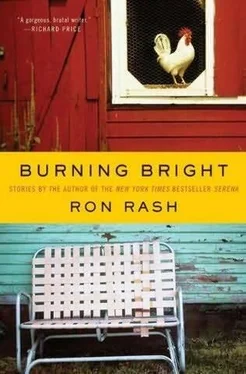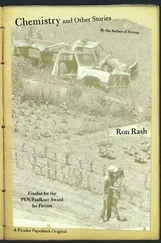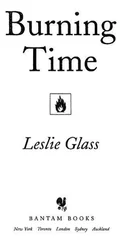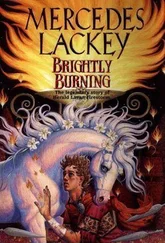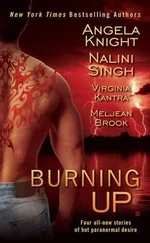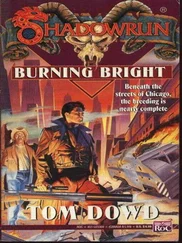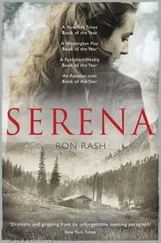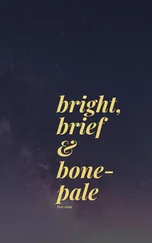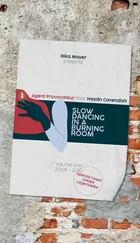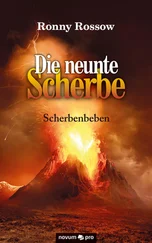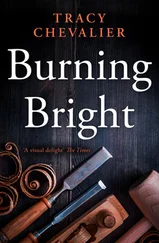He pulls up the flag and throws it behind the stone like it was no more than a weed. He flicks his cigarette lighter and says the words out loud like I can’t read them for myself.
“Lieutenant Gerald Ross Witherspoon. North Carolina Twenty-fifth. Born November 12, 1820. Died January 20, 1890.”
“Dug up October 23, 2007,” Wesley adds, and gives a good snort. He lights a cigarette and sets himself down by the grave. “You best get to it. We got all night but not an hour more.”
“What about you?” I say. “I ain’t doing all this digging alone.”
“We’d just get in the other’s way doing it as a team,” Wesley says, then takes a big suck on his cigarette. “Don’t fret, son. I’ll spell you directly.”
I lift my pickax and go to it. Yesterday’s rain had left some sog and squish in the ground so the first dirt breaks easy as wet sawdust. I get the shovel and scoop what I’ve loosed on the grass.
“People will know it’s been dug,” I say, pausing to gain back my breath.
And that’s a new thought for me, because somehow up to now I’d had it figured if they didn’t catch us in the graveyard we’d be home free. But two big holes are bound to have the law looking for those that dug them.
“And we’ll be long gone when they do,” Wesley says.
“You’re not worried about it?” I say, because all of a sudden I am. Somebody could see the truck coming or going. We could drop something and in the dark not even know we’d left it behind.
“No,” Wesley says. “The law will figure it for some of them voodoo devil worshippers. They’ll not think to trouble upstanding citizens like us about it.”
Wesley flares his lighter and lights another cigarette.
“We best get back to it,” he says, nodding at the pickax in my hand.
“Don’t seem to be no we to it,” I say.
“Like I said, I’ll spell you directly.”
But directly turns out to be a long time. When I’m up to my chest I know I’m a good four feet down and he still hasn’t got off his ass. I’m pouring sweat and raising crop rows of blisters on my palms. I’m about to tell Wesley that I’ve dug four feet and he can at least dig two when the pickax strikes wood. A big splinter of it comes up, and it’s cedar, which I always heard was the least likely wood to rot. I ponder a few moments why that grave’s not a full six foot deep and then remember the date on the stone. Late January the ground would have been hard as iron. It would have been easy to figure four foot would do the job well enough.
“Hit it,” I say.
Wesley gets up then.
“Dig some around it so we got room to get it open.”
I do what he tells me, clearing a good foot to one side.
“I’ll take over for you,” he says, and crawls into the hole with me. “Probably be easier if you was to get out,” he adds, picking up the shovel, but I ain’t about to because I wouldn’t put it past him to slip whatever he finds into his pocket.
“I wouldn’t be one to try and hide something from you,” Wesley says, which only tells me that’s exactly what he was pondering.
We wedge ourselves sideways like we’re on a cliff edge to get off the coffin. Then Wesley takes the shovel and pries open the lid.
The moon can’t settle its light into the hole as easy as on level ground so it’s hard to see clear at first. There’s a silk shirt you can tell even now was white and a belt and its buckle and some moldy old shoes, but what once filled the shoes and shirt looks to be little more than the wind that blusters a shirt on a clothesline. Wesley lifts the garment with his shovel tip and some dust and bones the color of dried bamboo spill out. He throws his shovel out of the hole and flicks his lighter. Wesley holds the lighter close to the belt buckle. There’s rust on it, but you can make out C S stamped on the metal, not CSA. Wesley lifts the buckle and pulls off what little is left of the belt.
“It’s a good one,” he says, “but not near the best.”
“How much you reckon it’s worth?”
“A thousand at most,” Wesley says after giving it a good eyeballing.
I figure the real price to be double that, but I’ll be there when the bartering gets done so there’s no need to argue now. Wesley grunts and gets on his knees to sift through the shirt, even checking inside what’s left of the shoes.
“Ain’t nothing else,” he says, and stands up.
I lift myself from the hole but it’s not as easy for Wesley. Though the hole’s only four foot he’s not able to haul himself out. He gets halfway then slides back, panting like a hound.
“I’ll need your hand,” he says. “I ain’t no string bean like you.”
I give him a tug and Wesley wallows out, dirt crumbs all over his shirt and pants. He puts the buckle in the pillow sheet and knots it.
“The other one’s down that way,” Wesley says, and nods toward the caretaker’s shack. He slides up his sleeve and checks his watch. “One fifteen. We making good time,” he says.
We start down the hill, weaving our way through the stones laid out like a maze. Then a cloud smudges the moon and there’s not enough light from the stars to see our own feet. We stop and I have a worrisome thought of something holding that cloud there the rest of the night, me and Wesley bumping into stones and losing all direction, trapped in that graveyard till the dawn when anyone on the road could see us and the truck too.
But the moon soon enough wipes clear the cloud and we walk on, not more than fifty yards from the caretaker’s place when we stop. We’re close enough to see the light that’s been glowing is his back-porch light. Wesley flares his lighter at the grave to check it’s the right one and I see the stone is for both Lieutenant Hutchinson and his wife. His name is on the left so it’s easy enough to figure that’s the side he’s laying on.
“Eighteen and sixty-four,” says Wesley, moving the lighter closer to the stone. “I figure a officer killed during the war would for sure be buried in his uniform.”
I get the shovel and pickax in my right hand and lean them toward Wesley.
“Your turn,” I say.
“I was thinking you could get it started good and then I’d take over,” he says.
“I’ll do most of it,” I say, “but I ain’t doing it all.”
Wesley sees I aim not to budge and reaches for the pickax. He does it in a careless kind of way and the pickax’s spike end clangs against the shovel blade. A dog starts barking down at the caretaker’s place and I’m ready to make a run for the truck but Wesley shushes me.
“Give it a minute,” he says.
We stand there still as the stones around us. No light inside the shack comes on, and the dog shuts up directly.
“We’re okay,” Wesley says, and he starts breaking ground with the pickax. He’s working in fourth gear and I know he’s wanting this done quick as I do.
“I’ll loosen the dirt and you shovel it away,” Wesley gasps, veins sticking out on his neck like there’s a noose around it. “We can get it out faster that way.”
Funny you didn’t think of that till it was your turn to dig, I’m thinking, but that dog has set loose the fear in me more than any time since we drove up. I take the shovel and we’re making the dirt fly, Wesley doing more work in fifteen minutes than he’s done in twelve years on the road crew. And me staying right with him, both of us going so hard it’s not till we hear a growl that we turn around and see we’re not alone.
“What are you boys up to?” the old man asks, waggling his shotgun at us. The dog is haunched up beside him, big and bristly and looking like it’s just waiting for the word to pour its teeth into us.
“I said, what are you boys up to?” the old man asks us again.
Читать дальше
